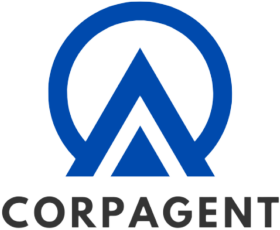CorpAgent safeguard
CorpAgent safeguard
One IBC® safeguard
What is One IBC® Safeguard
One IBC® Safeguard is designed to allow us to better protect you, support you and your accounts from fraud and financial crime. To do this we need to ensure that all the information we hold for you or your business is correct, complete and up-to-date. Changes in regulations may also mean that we require some additional information which we have not previously asked you to provide.
- Check and review all our customer accounts to check we have all the details we need.
- Be in touch to confirm, update or request new information.
Personal Customers
If you’re a personal customer we’re likely to need 2 types of documents from you: to confirm your identity, and to confirm your address. Occasionally we may need more information than this.
Business Customers
If you’re a business customer the documents we need will depend on the size and nature of your business. However we are likely to need to confirm your legal entity structure, your beneficial owners and countries you do business with.
What we will do with your data?
The sole purpose of gathering this information is so that our systems and processes can protect both our customers and the One IBC® against financial crime. We take our obligation to protect your data very seriously, so all the information you provide will be subject the One IBC®’s high data and security standards. The intent is only to use this information for your protection and will NOT be used by any third parties for marketing purposes.
What is financial crime?
Fraud and financial crimes are forms of theft. They tend to involve money or property that are gained illegally, and used in a deceptive or illegal manner to gain a benefit from the proceeds. In today’s complex economy, financial crimes can take many forms including money laundering, sanctions breaches, fraud, tax evasion, terrorist financing, bribery and corruption.
What has financial crime got to do with me?
Financial crime can affect anyone and everyone. Your support will go a long way to help us do business safer.
What are Sanctions?
Sanctions are a policy tool which national governments and organisations such as the United Nations and European Union use to constrain and deter perceived threats to their security, or to conform international conduct to recognised international standards. Sanctions help to stop crimes like terrorism, drug trafficking and arms dealing by imposing restrictions on the business that banks can do with specific people, corporations or countries and the names of these are clearly listed on things like the Office of Foreign Assets (OFAC) sanctions list.
Why is financial crime an increasing concern?
At One IBC®, addressing financial crime globally has long been one of our main priorities.
However criminal activity has become increasingly sophisticated in recent years, and fraudsters, money launderers and others have attempted to target global networks.
Improving the way we share and manage customer information will help us fight against the risk of financial crime. After all, it’s our duty to ensure that you can do business with us safely, securely, and confidently.
What has financial crime got to do with you or your business?
As the world becomes more and more connected and information moves around at a greater pace, there are unfortunately greater opportunities for criminals to misuse the financial system.
A key defence against money laundering is to prevent accounts being opened in false identities. We also sometimes need to verify where funds are from as part of our ongoing efforts to track our customers’ legitimate funds and to protect them from financial crime. Criminals will try to appear to be law abiding citizens or businesses and therefore we need to request documentary evidence from all of our customers in order to fully protect them and their accounts.
Why are you asking for all this information? Don’t you already have it?
As well as acting to safeguard our customers, One IBC® has a commitment to meet regulatory and legal requirements by ensuring that the information we hold is up-to-date, complete and accurate. You might have already provided some of this information prior to this request, but to stay one step ahead of fraud and financial crime, we need to ensure we have your most up-to-date information.
What information do I need to provide?
The request you receive from us will detail all the information required, in most cases this will include a certified copy or original document verifying your residential address. For some of our customers we may also require a certified copy of your identification documentation (e.g. a valid passport). We’ll advise exactly what you’ll need to provide when we contact you. In certain cases we can only accept original documents which must be sent to us by post.
Why do you need information about my Source of Funds and Source of Wealth?
Regulatory and legal obligations require us to understand where funds are coming from and going to. This also helps us to protect you from fraud and financial crime.
What will happen if I don’t provide this information?
We are required by our regulators to have this information. If we don’t receive your up-to-date information we may no longer be able to provide you with our services. If you are having trouble gathering the information, need more time or have any further questions, please let us know and we will do our best to help.
Documents and Certification
Who can certify my documents?
The following people can certify photocopies of your documents, on sight of the original document:
- Bank Manager of a licensed, regulated bank
- Embassy Consulate or High Commission Official of the country of issue of the documentation
- Lawyer or Notary Public*
- A Member of the Judiciary
- Actuary* of the country of issue of the documentation
- Accountant or Tax Adviser*
*Who is a member of a recognised professional body
If you provide original utility bills to confirm your address, these do not need to be certified. We regret that we will not be able to return these documents to you.
How do I certify my documents?
Your documents must be certified within the last three months and be in English. We can only accept certified copies that have been translated into English, providing both the foreign and English copies are certified as required.
How can I send my documents to you?
Once your documents are certified, please send them with your completed Personal Information Form to the following address: Unit 1411, 14/Floor, Cosco Tower, 183 Queen’s Road Central, Sheung Wan, Hong Kong and/or scan it then send over email to vetting@oneibc.com.




